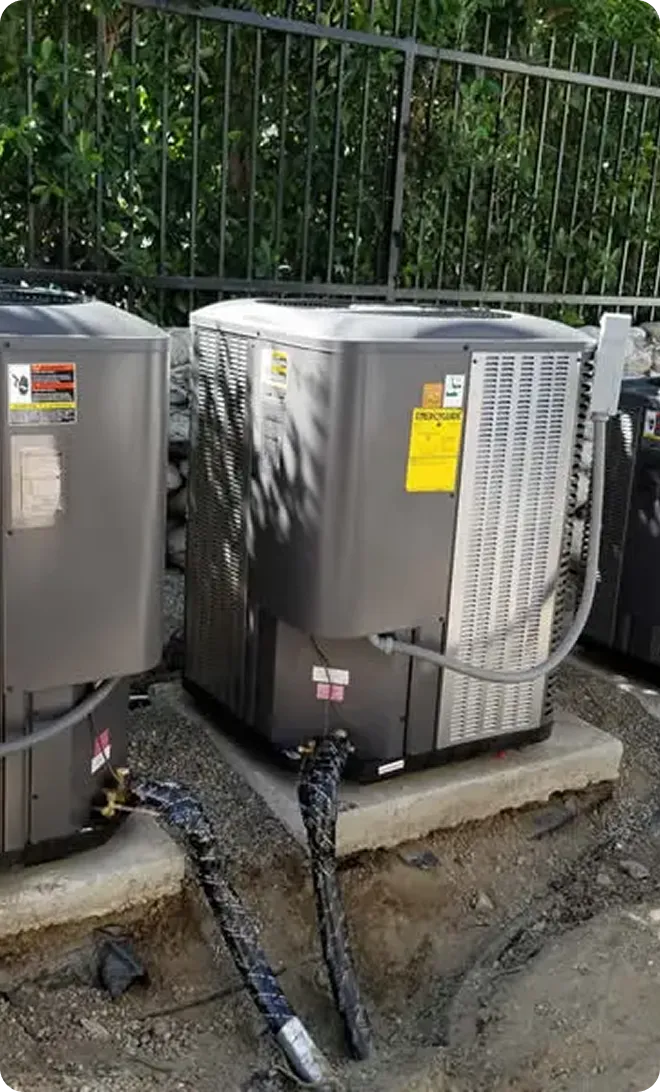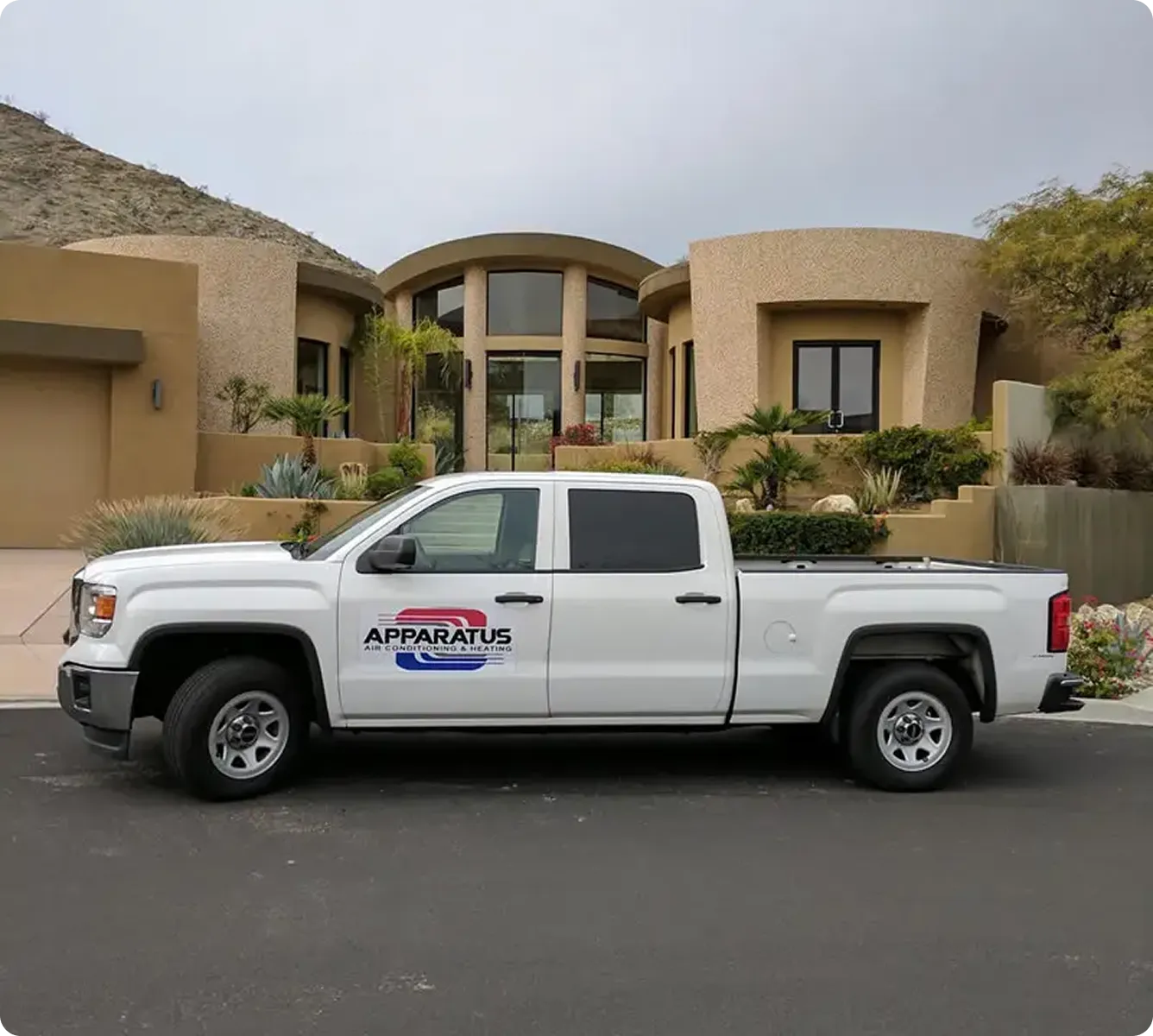
Water Heater Maintenance in Bermuda Dunes, CA
Water Heater Maintenance in Bermuda Dunes, CA
Keeping your water heater in peak condition is one of the most cost-effective ways to protect home comfort and avoid emergency repairs. In Bermuda Dunes and the surrounding Coachella Valley, mineral-rich groundwater, hard water, and long periods of high ambient temperatures accelerate sediment buildup and component wear. Regular, professional water heater maintenance in Bermuda Dunes, CA reduces breakdowns, improves efficiency, and extends the life of both tank and tankless systems.
-min.webp)
Why maintenance matters for Bermuda Dunes homes
- Hard water in the region deposits minerals inside tanks and on heating elements faster than in softer-water areas, reducing efficiency and increasing fuel or electric use.
- High daily temperature swings and hot garage conditions can alter recovery rates and stress seals and valves.
- Sediment accumulation increases corrosion risk and can cause tank overheating, noisy operation, and early failure.
Routine maintenance targets these local issues so your system runs reliably and cost-effectively year after year.
Common water heater issues in Bermuda Dunes
- Sediment buildup that reduces tank capacity, causes rumbling noises, and shortens element life.
- Depleted anode rods that leave the tank vulnerable to corrosion.
- Leaking or faulty temperature and pressure (T&P) relief valves, often triggered by high pressure or sediment.
- Thermostat drift causing water that’s too hot or not hot enough.
- Burner or heating element problems, including soot on gas burners or burned-out electric elements.
- Slow recovery or inconsistent hot water due to scale on burners/elements or thermostat problems.
- Small leaks at fittings or the tank (sign of imminent tank failure when internal corrosion is present).
What a thorough maintenance visit includes
A professional maintenance program typically combines visual inspection, cleaning, testing, and minor repairs. Standard tasks include:
- Annual inspection and tune-up: full system check, safety controls, and operational testing.
- Flushing the tank to remove sediment and restore capacity and heat transfer.
- Checking and replacing the anode rod as needed to prevent internal corrosion.
- Testing the T&P relief valve and replacing it if it fails to seat or leaks.
- Thermostat calibration to ensure accurate water temperature and safe limits.
- Burner and heating element inspection: clean gas burners, check pilot and ignition systems, and test electric elements for continuity and efficiency.
- Venting and combustion safety checks for gas water heaters, including draft and carbon monoxide risk evaluation.
- Dielectric union and piping inspection for leaks, loose fittings, and insulation needs.
- Drain pan and condensate checks for tank and high-efficiency models.
Each inspection results in a clear assessment of current condition, recommended repairs, and expected remaining life for critical components.
Diagnostic approach: how problems are identified
Technicians follow a methodical diagnostic process:
- Visual inspection for leaks, corrosion, and signs of overheating.
- Functional checks: light pilot/igniter operation on gas units, element resistance and amperage on electric models.
- Measure incoming water temperature, thermostat setpoint, and recovered hot water temperature to confirm thermostat accuracy.
- Flush a sample of water to assess sediment volume and water hardness effects.
- Test T&P valve under controlled conditions and check pressure at the supply.
- Evaluate anode rod wear and recommend replacement intervals based on remaining mass and local water conditions.
Diagnostics determine whether a targeted repair (anode rod, valve, element) or a larger intervention (descaling, partial replacement) is the most cost-effective option.
Common repairs and what they mean
- Tank flush and minor descale: restores capacity, reduces noise, and improves heat transfer; often resolves slow recovery issues.
- Anode rod replacement: inexpensive way to prevent internal corrosion and prolong tank life. In hardest-water homes, replacement may be needed every 2 to 4 years.
- T&P valve replacement: critical safety device; replace if leaking or failing to operate smoothly.
- Heating element replacement: common for electric units, typically a straightforward swap to restore performance.
- Burner cleaning/adjustment: for gas units, removes soot and restores efficient combustion.
- Thermostat replacement or recalibration: ensures stable, safe water temperatures and prevents unnecessary reheating cycles.
- Tank replacement: recommended when leak signs, severe corrosion, or repeated component failures indicate the tank itself is compromised.
Timely repairs minimize more expensive outcomes such as full tank replacement and water damage.
Recommended service intervals and plan options
- Annual maintenance is recommended for most Bermuda Dunes homes. This includes flush, anode inspection, T&P testing, thermostat check, and burner/element inspection.
- Biannual servicing may be appropriate for properties with very hard water, high hot-water demand, or for commercial units.
- Anode rod replacement: typically every 3 to 5 years in moderate conditions; more often with hard water.
- Flushing frequency: at least once per year; twice a year for homes with high sediment or heavy mineral content.
- Service plan options generally offered:
- Basic annual tune-up and safety check.
- Comprehensive plan including prioritized scheduling, annual tune-up plus midyear quick-check, and parts discount for wear items.
- Customized plans for multi-unit or seasonal properties with tailored intervals.
Plans commonly include scheduling reminders and flexible appointment windows to fit homeowner needs.
Benefits of regular maintenance
- Increased energy efficiency and lower utility bills due to optimal heat transfer and accurate thermostat control.
- Extended equipment life by preventing corrosion and premature component failure.
- Improved safety by ensuring T&P valves and combustion systems function correctly.
- Fewer emergency repairs and less chance of water damage from sudden tank failure.
- More reliable hot water delivery for daily comfort and property value preservation.
Seasonal and local considerations for Bermuda Dunes
- Desert conditions mean higher mineral content and warmer groundwater, both of which speed sediment and scale formation. Expect more frequent anode checks and a stricter flush schedule.
- Water heaters located in hot garages or unconditioned spaces will see higher operating stress; insulation and proper ventilation help preserve performance.
- Homes used seasonally (vacation properties) benefit from pre-season maintenance and winter shutdown checks to avoid freeze risk in rarer cool snaps and to prevent corrosion during idle periods.
Regular professional maintenance tailored to Bermuda Dunes conditions protects your water heater investment, reduces energy waste, and keeps your household safe and comfortable. Maintenance intervals and plan options should reflect local water quality, system type, and household usage to deliver the best long-term value.

hear what our satisfied
clients have to say









.webp)